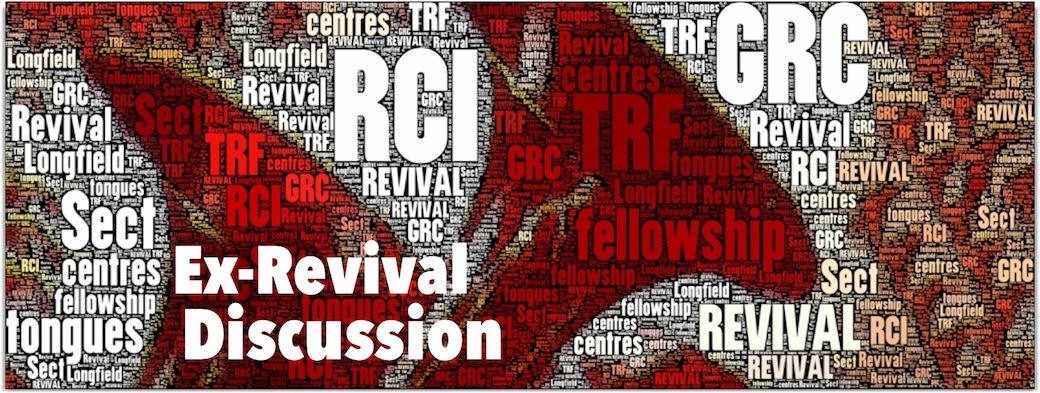Forum for ex-members of Revival Churches

|
| Title: New book: 'The Christian Delusion' | |
| Revival_Centres_Discussion_Forums > Reviving from Revival > The Ex-Christian Chatroom | Go to subcategory: |
| Author | Content |
|
Ex_Member
|
|||
|
Date Posted:02/07/2010 1:41 AMCopy HTML Here's the latest book causing a wee stir amongst the Atheist/Agnostic/ex-Christian scene:
 I've only just started reading it so I can't really comment yet, but the stuff I read about Christian cultures (plural) was very good and I am sure a lot of post-Revivalists would relate to some of what was said in there too. Below is a summary from an ex-Christian blogger:
This review is from: The
Christian Delusion: Why Faith Fails (Paperback)
This newly published book is an anthology containing 15 chapters written
by 9 scholars, most of which were at one time conservative Christians.
It surveys the problems with Christianity from a number of different
angles--sociological, psychological, scientific, historical, and
biblical. It is the probably the single best volume available today to
debunk evangelical Christianity. It brings together a variety of
arguments into one work, that prior to its publication, would have
required one to sift through dozens of books to find them. While there
are some areas that still could be covered, for example, the immoral and
illogical nature of the atonement (a topic near to my heart),
nevertheless, it covers most of the bases.
Chapter One is written by anthropologist David Eller and discusses how Christianity is a phenomena that can be understood purely on cultural and sociological grounds. Chapter Two is by psychologist Valerie Tarico who examines the concept of belief (or faith) as it is presently understood by neurologists and shows that it is rarely based on evidence or arguments. Chapter Three is by pharmacist Jason Long who deals with how religious ideas develop in people and how they hold on to them regardless of the evidence. Chapter Four is by former Pastor and Christian apologist John Loftus who explains his Outsider Test for Faith. He invites people to "step outside" of their belief system and evaluate their religion in the same way they would evaluate a religion that they do not hold. Chapter Five is by librarian Ed Babinski who has studied Young Earth Creationism extensively. He clearly presents the pre-scientific understanding of the cosmos as held by biblical writers and shows that it is impossible to reconcile that understanding with what is currently known in science. Chapter Six is by author (The Rejection of Pascal's Wager: A Skeptic's Guide to the Bible and the Historical Jesus ) Paul Tobin who shows that the historical criticism of the Bible reveals that it contains errors, inconsistencies, myths, legends, and forgeries. Chapter Seven has John Loftus returning to demonstrate how the Bible fails to communicate clearly. He shows how interpretational conflicts over the meaning of Scripture has led to millions of deaths as well as untold suffering through the ages. He argues that one would expect an omniscient God to be able to communicate his will in a much better fashion. Chapter Eight is by biblical scholar Hector Avalos and discusses why the God of the Old Testament is a cruel and monstrous tyrant in spite of Christian apologists attempt to justify him. Chapter Nine is my favorite chapter in the book. In it John Loftus returns to lay out the problem of animal suffering and examine 8 different ways Christians have tried to reconcile that suffering with a good God. He shows convincingly that each Christian answer fails and that there is no reconciliation possible. Chapter Ten is by NT scholar Robert Price who, in his own unique and sarcastic way, demolishes the attempts by evangelicals to wiggle out of the implications of biblical criticism. Chapter Eleven is by historian Richard Carrier who applies the Outsider Test of Faith to the "historical evidence" put forward by Christian apologists for the resurrection. He demonstrates conclusively that if one treats the NT as historians treat every other ancient document, the teaching that Jesus of Nazareth rose from the dead is untenable. Chapter Twelve brings John Loftus back again to show that Jesus of Nazareth is but one in a long list of failed apocalyptic prophets. He demonstrates that Jesus taught the world would end in the lifetime of the disciples and that all of the first century believers including Paul thought Jesus would return at any moment. He goes on to show how Christians have had to rethink their eschatological ideas in light of the failure of Jesus to return. Chapter Thirteen is a repeat performance by David Eller in which he explodes a commonly held myth that morality must be based on a divine being. He proves that morality is merely an expression of one's culture. Chapter Fourteen has Hector Avalos returning to deal with the argument put forward by Christians that the holocaust and the other atrocities committed by Adolph Hitler were a result of Darwinian or atheistic ideology. He shows that instead Hitler's motivating factors were actually the example of the Roman Catholic Church and the teaching of Martin Luther about the Jews. Chapter Fifteen is another essay by Richard Carrier in which he shows the absurdity of the Christian claim that modern science is based upon the precepts of the Christian worldview. Once again, this is an excellent volume and I highly recommend it to anyone who is willing to examine the evidence and think seriously about the Christian faith. I am sure many Christians will be afraid to read it or even advised by their leaders not to read it. But as Socrates is reported to have said: "The unexamined life is not worth living." |



